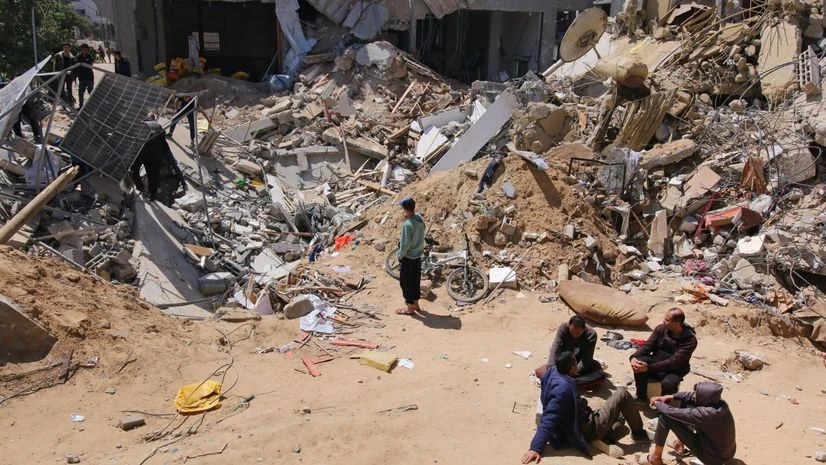By Eric Martin
Israel’s military offensive in the Gaza Strip has destroyed about $18.5 billion in infrastructure, equal to about a year’s worth of economic output in the enclave and the West Bank, according to a new report that outlined the devastating economic impact of the Hamas war.
The findings offer one of the most detailed assessments yet of the destruction that’s resulted from the military campaign that Israel launched in the days after Hamas militants attacked the country’s south on Oct. 7 and killed some 1,200 people. About 32,000 Palestinians have been killed in the response, according to the Hamas-run health ministry.
According to the report, about 74% of Palestinians in Gaza are now unemployed and the region’s GDP has dropped by 86% in the last quarter of the year. It said the rate of damage appears to be flattening because few assets remain intact, and Israeli operations have left 26 million tons of debris and rubble, which will likely take years to remove.
“The shock to Gaza’s economy as a result of the ongoing conflict is one of the largest observed in recent economic history,” according to the report, which was issued by the World Bank, the European Union and the United Nations.
The report used remote data collection sources to measure damage to infrastructure in critical sectors since the start of the response to Hamas’s attack through the end of January. It found that damage to housing accounts for 72% of the costs; public service infrastructure like water, health and education 19%; damages to commercial and industrial buildings 9%.
)
)
More From This Section
The report paints a dark humanitarian picture, with more than half the population of Gaza on the verge of famine and the entire population experiencing acute food insecurity and malnutrition. It said more than 1 million people have been left without homes and three quarters of the population is now displaced.
The war has had a disastrous effect on physical and mental health for women, children, the elderly, and people with disabilities the hardest, with the youngest children expected to be facing life-long consequences to their development, the report said.
Even the delivery of basic humanitarian aid has become very difficult with more than 90% of main roads destroyed or damaged and communications greatly limited.

)
